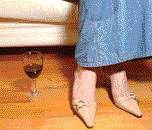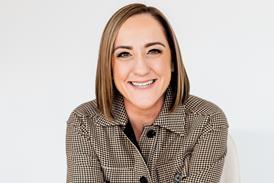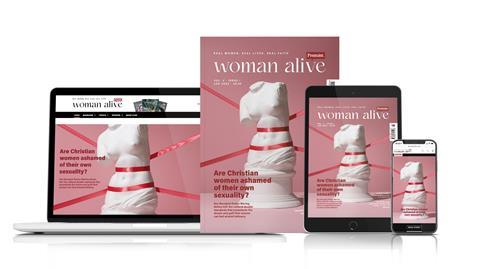
Are you drinking too much?
When was the last time you had an alcoholic drink? At a recent party? This week after work? Last night with dinner? Or perhaps it was this morning after you returned from the school run and unpacked the shopping . . . Sharon Barnard reports on the growing issue of alcohol consumption among women
It’s not just men who do the heavy drinking any more. You’ve only got to visit your town centre late on a Friday night to see the evidence – groups of young women staggering out of clubs and pubs clearly the worse for wear.
But it seems youngsters are not the only ones with a growing dependency on alcohol (if that is not worrying enough). Recent figures from the Office of National Statistics reveal that older women drink more often now with 11% of 25 to 44-year-olds and 17% of 45 to 64-year-olds regularly drinking on five or more days per week.
According to Alcohol Concern, the traditional stigma attached to women who drink has faded. Not many people bat an eye these days when they see a middle aged woman filling up her supermarket trolley with wine, or entering a pub alone. Alcohol is easily available, it’s relatively cheap and there are now many more female-friendly venues in which to drink it.
Not all of us will turn into alcoholics the moment a gin and tonic passes our lips, but for some women, like Jackie (see opposite), our drinking is a problem when we’ve become dependent on it. Alcohol Concern says that studies have identified a number of situations “where women are vulnerable and at risk of developing problem drinking”. These include family (to cope with exhaustion or isolation etc); employment (stress, balancing home/work, drinking culture); partnerships (a husband who is a heavy drinker; the loss of a partner) and the social scene (women drinking together often develop compatible drinking habits).
For Christians who choose to drink but only in moderation (there are many of course who abstain for theological or other reasons), it is still vital that we are aware of the dangers. After all, alcohol is a temptation like anything else and unresolved issues like low self-esteem, depression or alcoholism in the family may be a trigger to heavy drinking.
If you are concerned about your own, (or your daughter’s or mum’s) increasing alcohol consumption (see the guidelines below), the first step is to admit you have a problem and then seek help. Today. The good news is that God still loves you no matter how much you have messed up, and there are plenty of experienced people out there who can get you back on track and support you while you do it. (Check out the list of organisations opposite.)
Drinking guidelines for women
* Adult women should not regularly exceed more than 2-3 units per day. One unit is a small glass of wine (125ml), half a pint of beer, cider or lager, or a pub measure (25ml) of spirits.
* Try to avoid alcohol if you’re pregnant, but if you do drink do not exceed 1-2 units once or twice a week.
* Drinking more than 6 units a day or over 35 units a week will cause significant harm to physical and mental health, and may harm others.
* Binge drinking (consuming large quantities of alcohol over a short period of time) can have immediate risks to the drinker and those around them.
(Department of Health, 2007)
What can too much alcohol do to me?
Women’s physical make-up affects the way alcohol is processed in the body:
* We have 10% more fat than men and less fluid to dilute the alcohol so there will be a higher concentration of alcohol in the body.
* The average woman weighs less than the average man so they will have less tissue to mop up the alcohol.
* We appear to have lower levels of alcohol dehydrogenase (AHD) in our stomachs, so alcohol stays longer in the system before being metabolised and so has a greater effect.
* Drinking above the recommended levels increases the risk of illness including cancer, heart disease and stroke, obesity linked to high blood pressure, osteoporosis, digestive problems, loss of cognitive function and birth defects.
Excessive drinking can lead to impaired performance at work, unsafe sex, vulnerability to attack and increased mental and social problems.
(Acquire bulletin, Alcohol Concern, Winter 2008)
Where to find help
* Al-anon and Alateen 0207 403 0888 (10am-4pm) for families and friends of alcoholics, whether the alcoholic is still drinking or not. Web: www.al-anonuk.org.uk
* Alcoholics Anonymous (AA) 0845 769 7555 is the National Helpline and local numbers can be found in the phone book or at www.alcoholics-anonymous.org.uk
* Drinkline 0800 917 8282 (Mon-Fri 9am-11pm, Sat/Sun 6-11pm)
* Hope UK 020 7401 3477 encourages children and young people to make drug-free choices. Web: www.hopeuk.org
* National Drugs Helpline (Department of Health) 0800 77 66 00
* Overcomers Outreach UK (OO) 07955 343518/9 – a bridge between traditional 12-step support groups and those within churches of all denominations. Web: www.overcomersoutreach.co.uk
Useful information
* Alcohol Concern has produced a number of booklets and factsheets on alcohol related topics. 020 7264 0510. Web: www.alcoholconcern.org.uk
* Institute of Alcohol Studies 01480 466766 Web: www.ias.org.uk
* Thirst for Life (a Hope UK and Share Jesus International initiative). Check your drinking habits with an online test, take up the challenge to go alcohol free and find support and resources. Web www.thirstforlife.org
* NIV Recovery Bible (£19.99) ISBN: 9780340909065
* The Use and Misuse of Alcohol by Chris Cook (Grove Books, £2.95) ISBN 9781851746521. Also available as an eBook from www.grovebooks.co.uk Tel: 01223 464748
Testimony
“My life was falling apart”
Jackie, 48, now a recovering alcoholic, started out as a social drinker, but gradually found her cravings for alcohol were getting the better of her. This is her story
Once I had the taste of alcohol in my mouth I couldn’t stop drinking until I fell asleep. No matter how I promised myself that I would “only have the one”, my body seemed to take over my mind and nothing else mattered. I would come home from work, cook tea and then retire for the night. Family time was non-existent. All my drinking was done alone and behind the security of my lace curtains.
Hangovers were just par for the course and I found many excuses for my headaches, nausea and such like. I would sit at my desk, looking professional, but feeling dirty and unworthy. Every morning I would vow I wouldn’t have a drink that day, but by 3pm my body would crave for the taste and I would buy a bottle on the way home.
Eventually, I started to hide the bottles in numerous places around the house. Sometimes I would forget where I’d put them! I lied to my husband and daughters, denying that I’d had a secret drink and therefore trust went out of the window.
My poor husband would come home from work and worry if he would find me intoxicated. He told me over and over again that he could see I had a problem, but alcoholism is the ‘illness of denial’. Sometimes I doubted my sanity.
I would make phone calls to friends and not remember speaking to them the day after. I would watch a TV programmes and forget the ending. My parents worried about me, but were too embarrassed to tell me. My life was slowly falling apart and I didn’t have any control over it.
It took me quite some time to admit I had a problem and through many tears, promises and resolutions, I finally threw in the towel and asked for help.
I rang the local Alcoholics Anonymous (AA) helpline (I found the number in the local paper) and spoke to Carole, who assured me that I wasn’t alone and that she could help me if I wanted her to. She arranged to take me to my first AA meeting one lunchtime after Christmas in 2002.
While I was waiting for Carole at our meeting place, many thoughts were rushing through my head like why have I ended up like this? What if someone I know sees me? and, I’ll walk away now and forget I ever rang AA. Needless to say, Carole met me, introduced me to some other friendly people and I attended my first AA meeting.
I was astonished. Gone were the ideas that all alcoholics wore dirty macs, drank from bottles and needed a wash. I met some well-dressed professional people who were actually laughing and telling jokes – and they genuinely cared. I was told that my life could have a new meaning if I wanted to follow the AA programme.
Since that day I have not had an alcoholic drink. It was hard at first and tempting thoughts have entered my head time and time again, but with the help of the fellowship and the other members who were just a phone call away, I have been sober a day at a time.
I had stopped drinking, but there was still something missing from my life and I couldn’t put my finger on what it was. AA is not a religious group, but it put me on the step of life again and made me want to look for God again.
Firstly, on the spur of the moment, I visited a nearby Christian monastery. As I sat in the church looking around at the statues, the stations of the cross and the lighted candles, I felt an overwhelming force inside me which I cannot explain. I felt like God had taken me into his arms and was holding me close, hugging me and welcoming me back! Memories of childhood came rushing back to me from my churchgoing days. I knew that my life had definitely turned a corner.
I purchased a Bible from the church shop and took it home. I am always at home now, sat in my favourite chair and ready to join in with family discussions or commitments. I can now go to bed sober and in the morning wake to a full memory of what I did the night before.
I feel so carefree and happy and life has taken on a new meaning. I now try and give back what I was given. I am listed on the local AA phone list and if anyone rings up as confused, isolated and embarrassed as I was, I can truthfully tell them that I know what they’re feeling as I’ve been there myself.


























